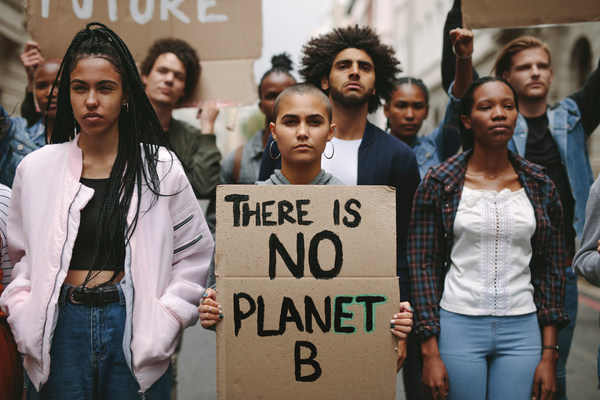HAUPPAUGE, N.Y., Oct. 26, 2021 /PRNewswire/ -- With COP 26 about to get underway in Glasgow, there are those who worry that the planned sessions will not lead to the actions necessary to avoid transgressing the warming benchmarks outlined in the Paris Agreement. Dr. David E. McClean, Senior Lecturer in Philosophy at Rutgers University (New Jersey, USA), where he teaches social ethics and environmental philosophy, and Founder of Business and Government Ethics International ("BGEI"), is one of those persons. He argues that what the world needs is a GLOBAL CLIMATE AUTHORITY to police and enforce compliance with climate agreements. Says Dr. McClean, "Weak compliance mechanisms doomed the Paris Accords from the start. Given recent changes in the international political landscape and the perilous domestic politics in more than a few of the world's richest countries, it's clear that a more robust institutional mechanism is needed to achieve the right level of cross-border cooperation concerning the biggest issue facing humanity."

Dr. McClean has discussed his views concerning a global climate authority on CBC radio, in several broadcasts of its IDEAS program, and sets down his arguments in his monograph "Climate Change: The Moral and Political Imperatives," which he published on-line in 2017. "No country relies on voluntary compliance when it comes to taxation and commercial contracts, but rather robust enforcement mechanisms are used to assure compliance," says McClean. "How can it be," he queries, "that we understand the need for enforcement mechanisms to assure that taxes are collected, yet when it comes to saving the world from the worst that climate change will deliver unto us and unto thousands of other species, we are content to rely on voluntary compliance? Knowing the political pressures faced at home, how can voluntary compliance be a proper moral response?"
McClean argues that a global climate authority isn't a step toward "world government" (assertions concerning which he refers to as "a canard") but would be a sensible, pragmatic, and adaptive tool created by the world's states and which could sunset at a date certain. He believes the global climate authority should be created by the UN Security Council, perhaps using and expanding its "Responsibility to Protect" principle as the basis. The coercive mechanisms would include requiring states to fund an international escrow fund whereby states would forfeit some of their deposit when they fail to meet certain material targets, with the forfeited sums going to less rich countries to help them in their efforts to meet their commitments. With various negotiation algorithms, states could be assured that they can avoid most of the problems of free-riders and also avoid "tragedy of the commons" outcomes. Concerning the UN Security Council, McClean says "I am aware of the political hurdles and do not wish to minimize them. I am also aware that if the word "Security" in Security Council is to mean anything it must mean that the Council plays a leading role to address the climate emergency. If the Security Council can't or won't address the biggest threat to global security since the commencement of the nuclear arms race, then what, exactly, is it good for?
CONTACT: dm@bgei.net, @bgeiconsultants
Photo - https://mma.prnasia.com/media2/1669280/GLOBAL_CLIMATE_AUTHORITY.jpg?p=medium600